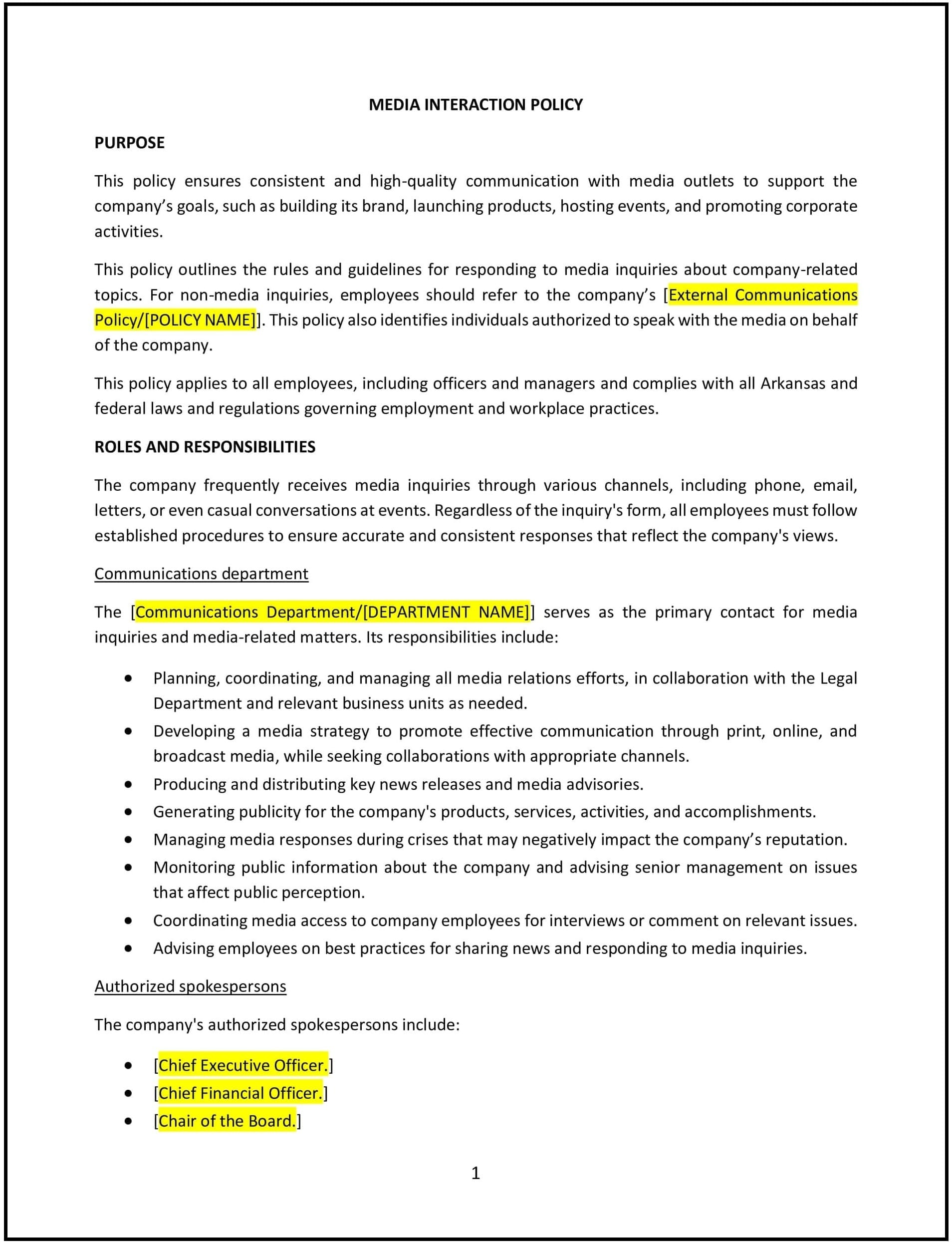Got contracts to review? While you're here for policies, let Cobrief make contract review effortless—start your free review now.

Customize this template for free
Media relations policy (Arkansas)
In Arkansas, a media relations policy provides businesses with guidelines for managing interactions with the media to ensure consistent messaging and protect the business’s reputation. This policy outlines the roles, responsibilities, and approval processes for responding to media inquiries or issuing press releases.
By implementing this policy, Arkansas businesses can ensure professional communication, manage sensitive information, and support compliance with legal and ethical standards.
How to use this media relations policy (Arkansas)
- Assign spokespersons: Designate specific employees, such as executives or communications professionals, as the only individuals authorized to speak with the media.
- Establish approval processes: Require all press releases, media responses, and public statements to undergo review and approval by the designated team or manager.
- Protect confidential information: Prohibit employees from disclosing sensitive or proprietary business details without prior approval.
- Set communication protocols: Provide clear guidelines for responding to unsolicited media inquiries, including escalating them to the appropriate spokesperson.
- Provide training: Educate employees on media relations practices, emphasizing professionalism and confidentiality.
Benefits of using this media relations policy (Arkansas)
This policy offers several advantages for Arkansas businesses:
- Protects the business’s reputation: Ensures consistent and professional messaging in all interactions with the media.
- Supports compliance: Aligns with Arkansas and federal regulations regarding advertising, disclosure, and communication standards.
- Reduces risks: Prevents unauthorized disclosures that could harm the business or violate legal obligations.
- Enhances brand consistency: Maintains a unified message across all media interactions, reinforcing the business’s identity.
- Builds stakeholder trust: Demonstrates the business’s commitment to transparency and professionalism in public communications.
Tips for using this media relations policy (Arkansas)
- Address Arkansas-specific considerations: Include any state-specific laws or cultural factors that could influence media interactions.
- Update contact lists: Ensure that the names and contact information of authorized spokespersons are current and easily accessible.
- Monitor media coverage: Regularly review media mentions to address inaccuracies or respond to feedback as needed.
- Provide examples: Offer employees examples of appropriate and inappropriate responses to media inquiries.
- Review periodically: Update the policy as needed to reflect changes in business practices, leadership, or external regulations.